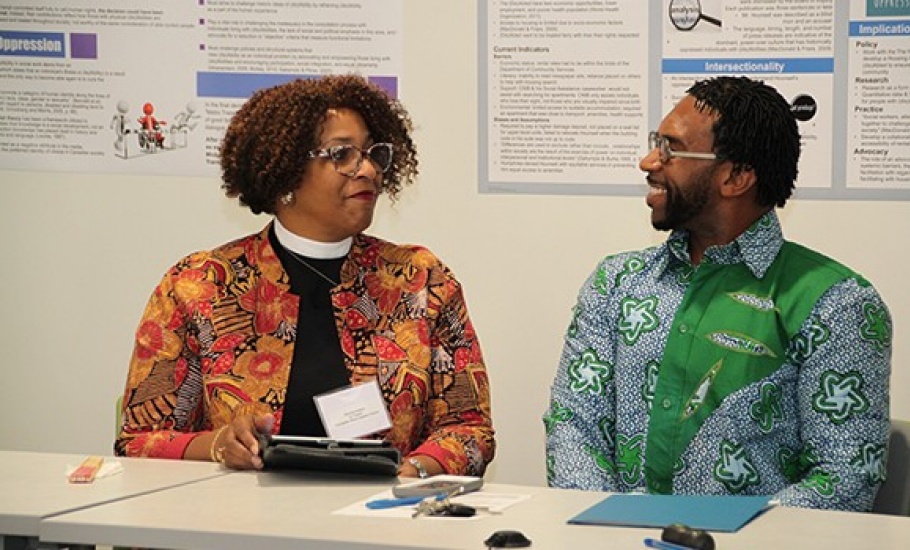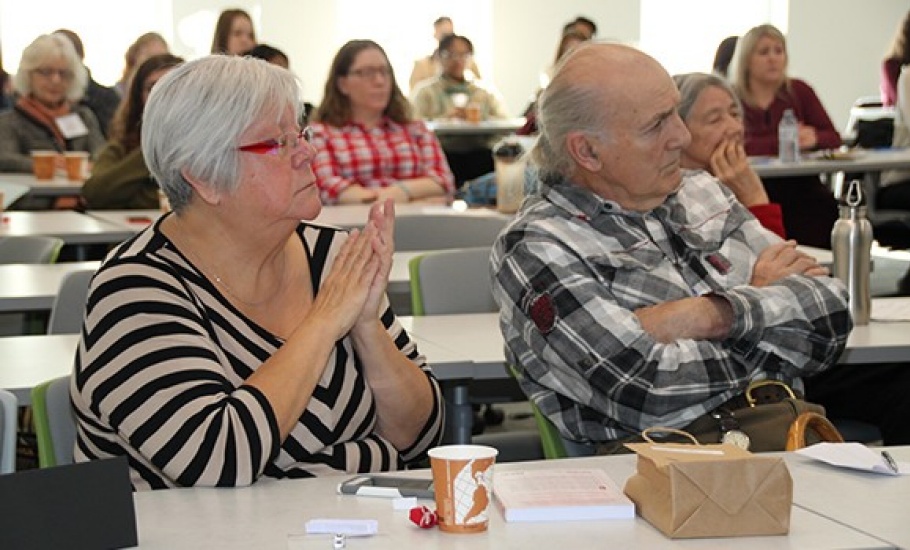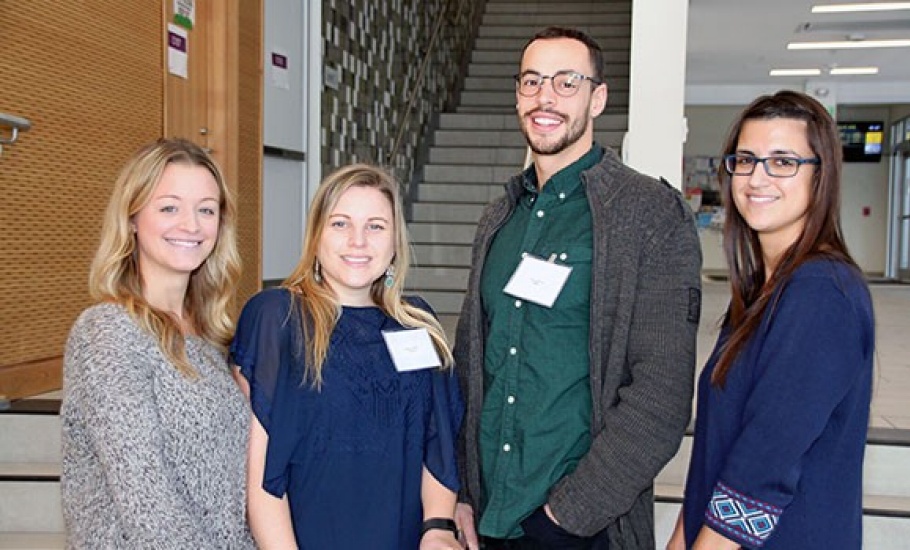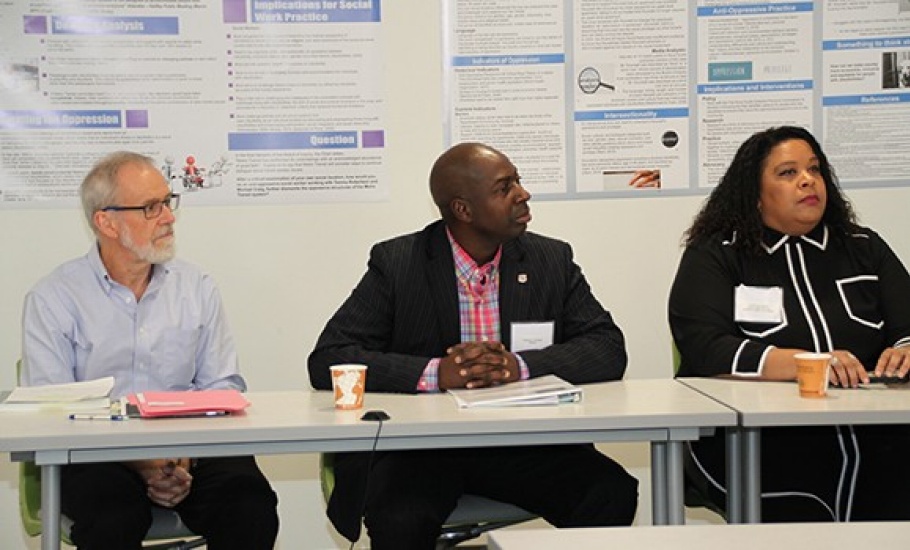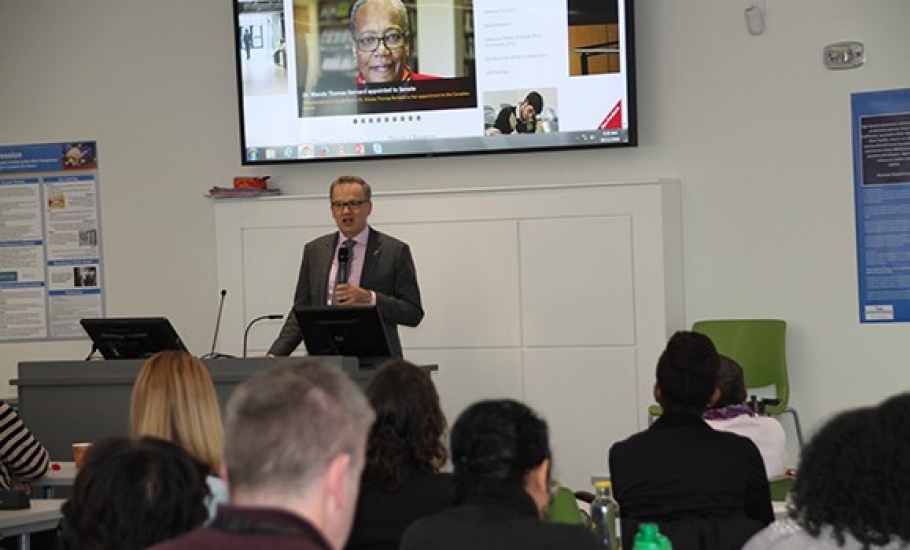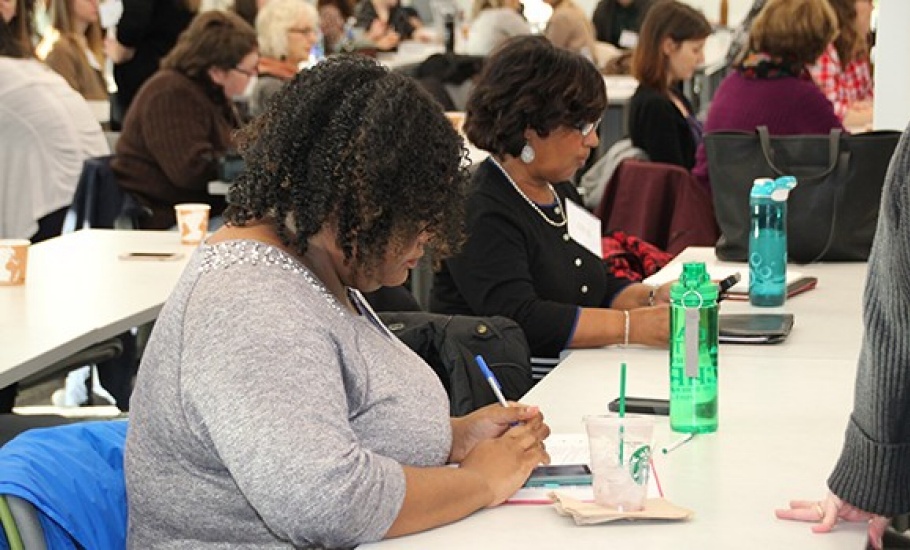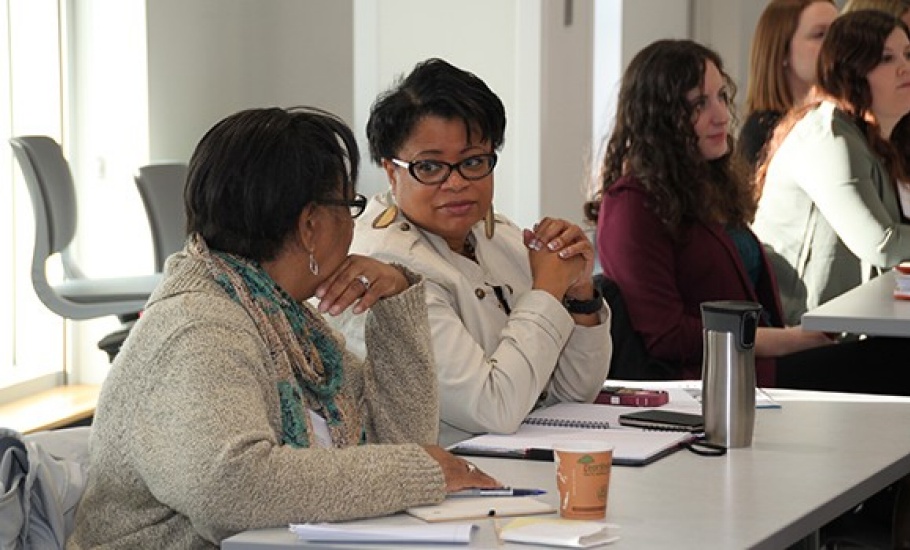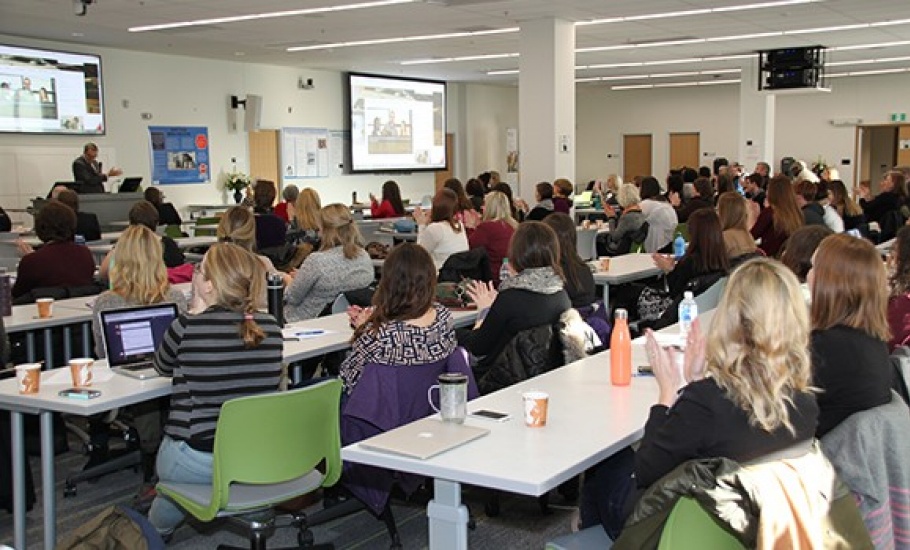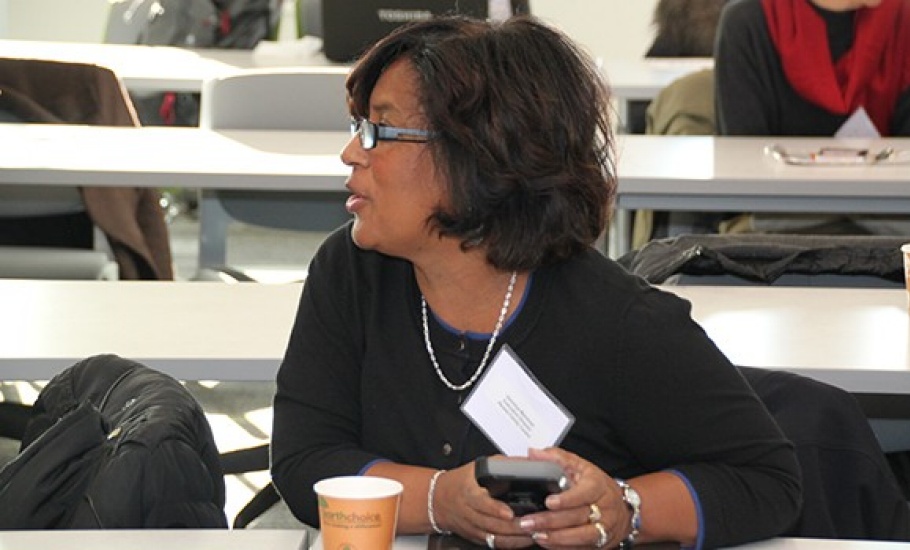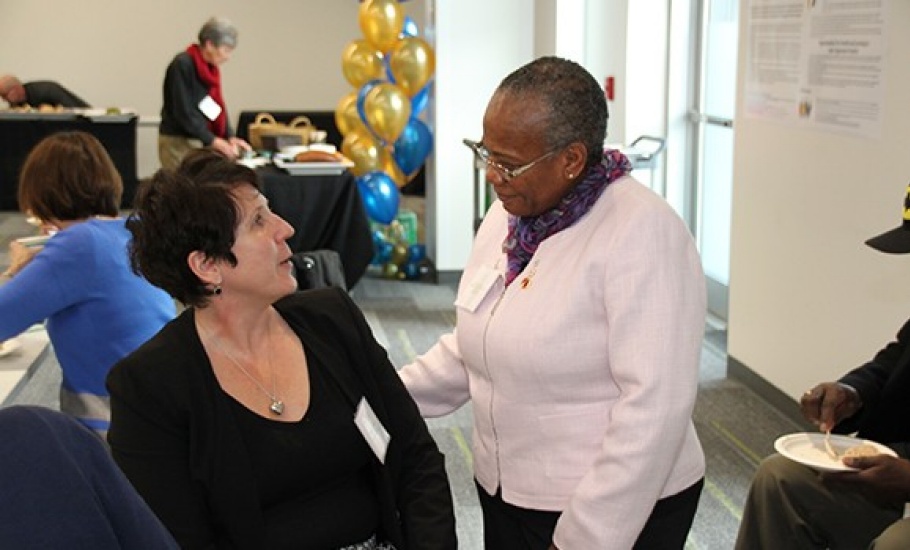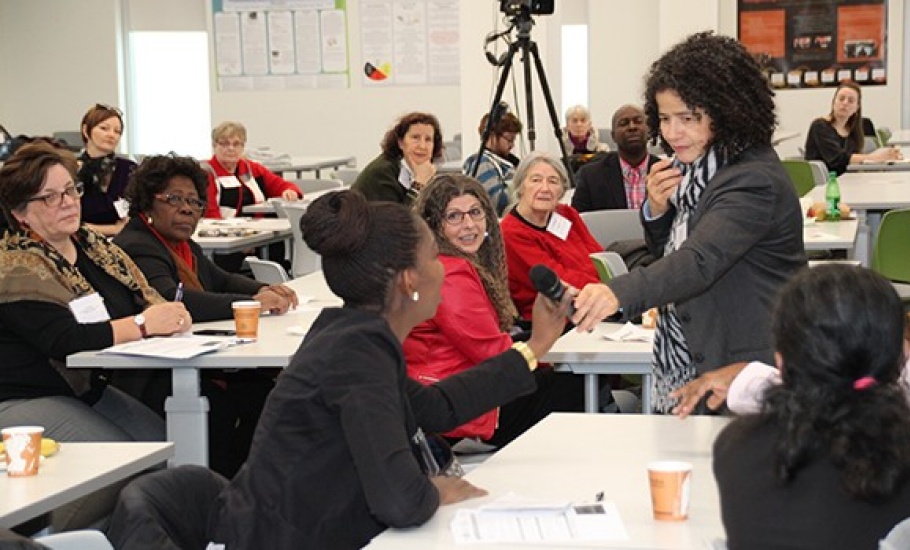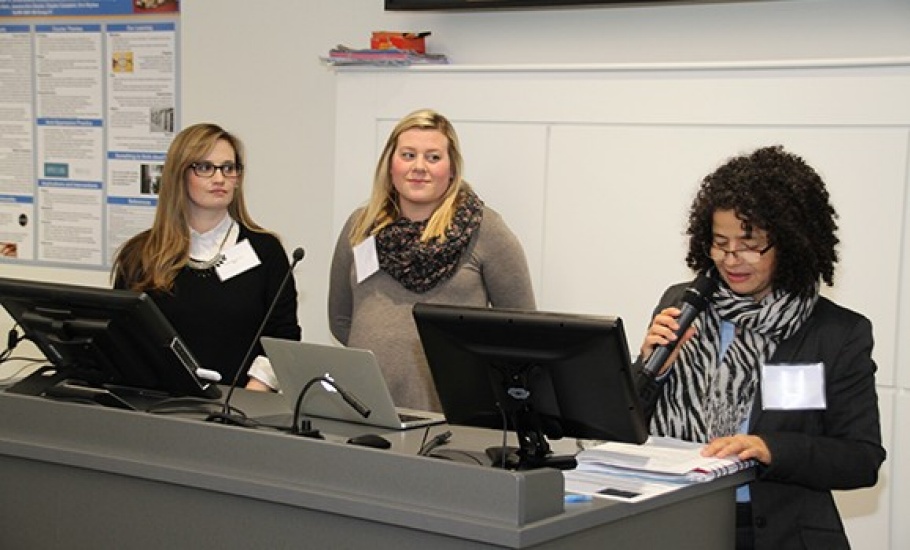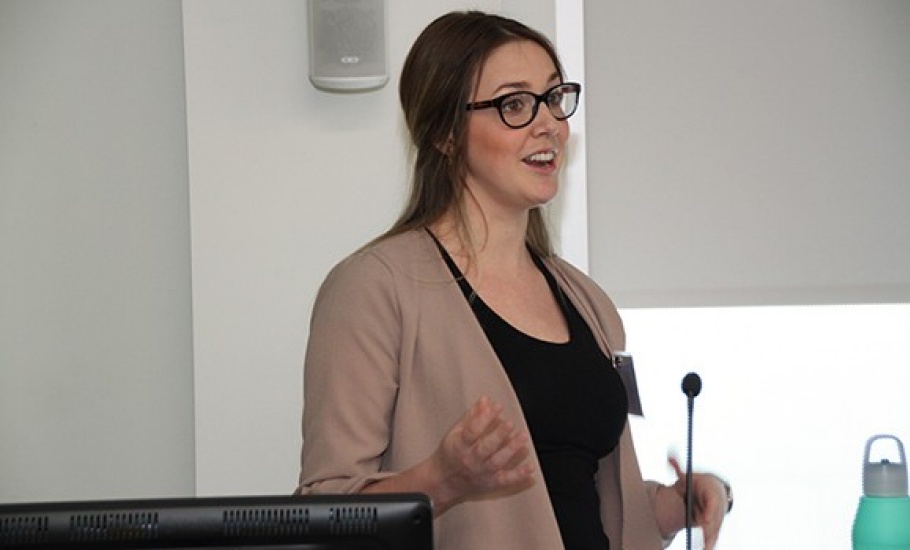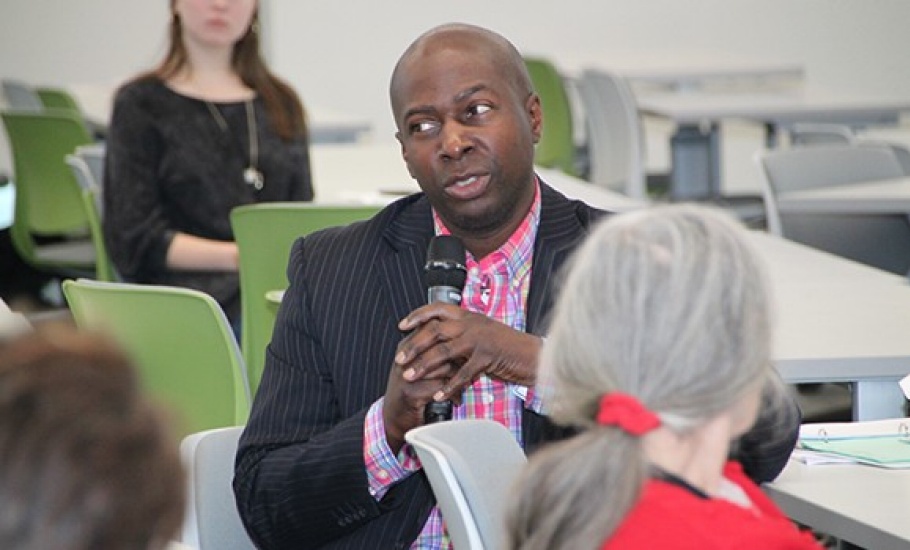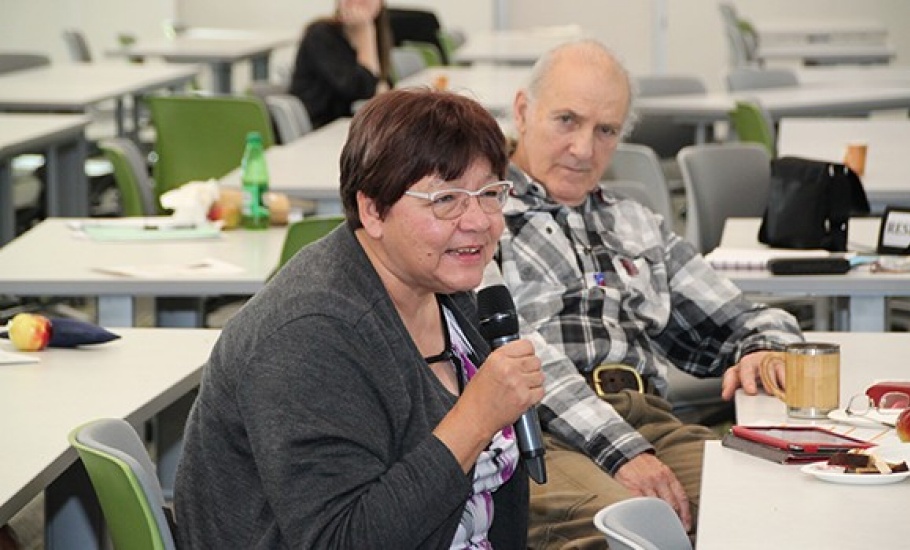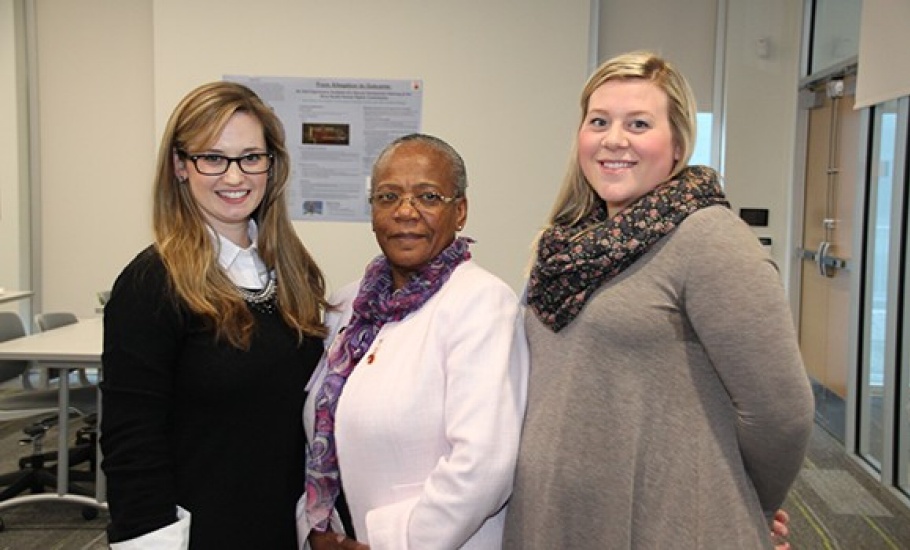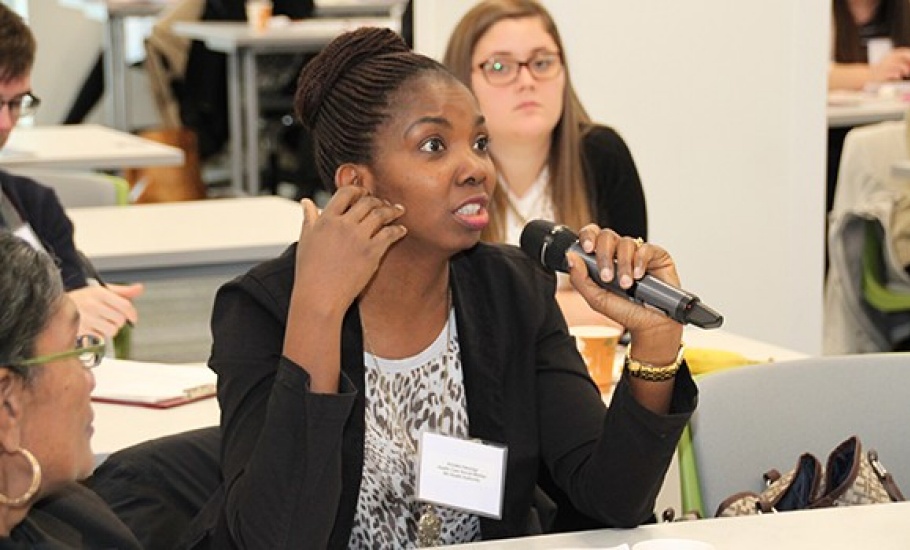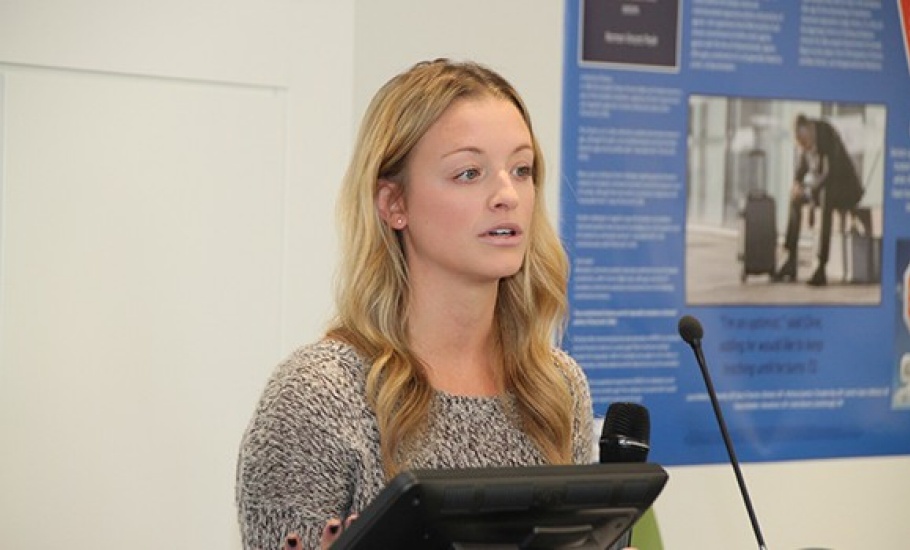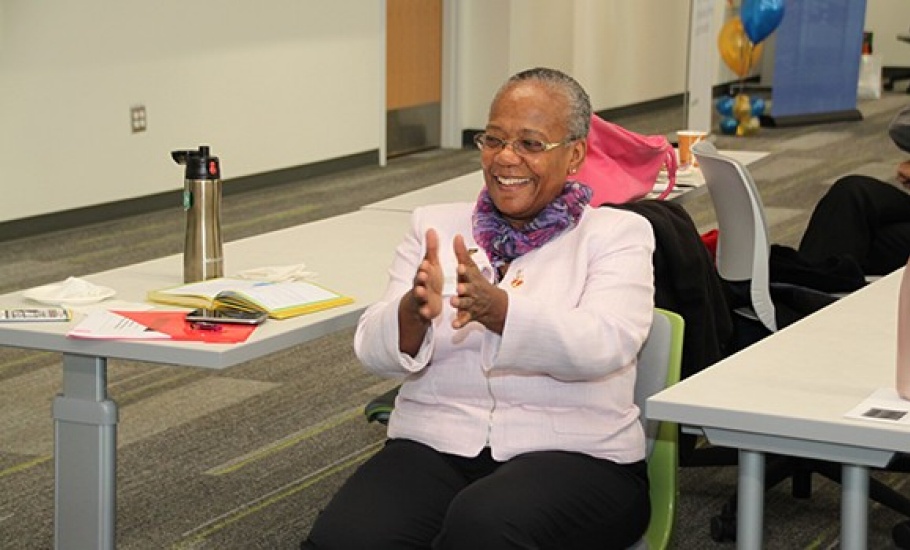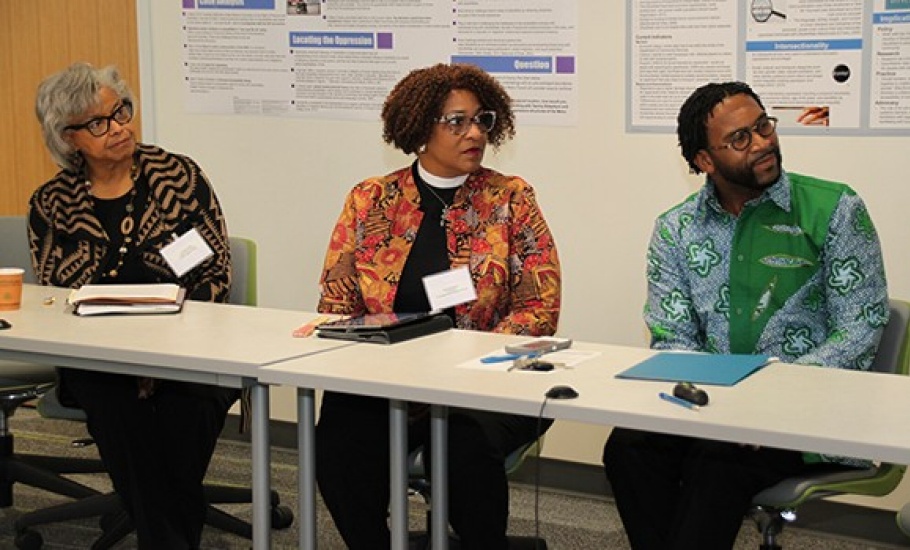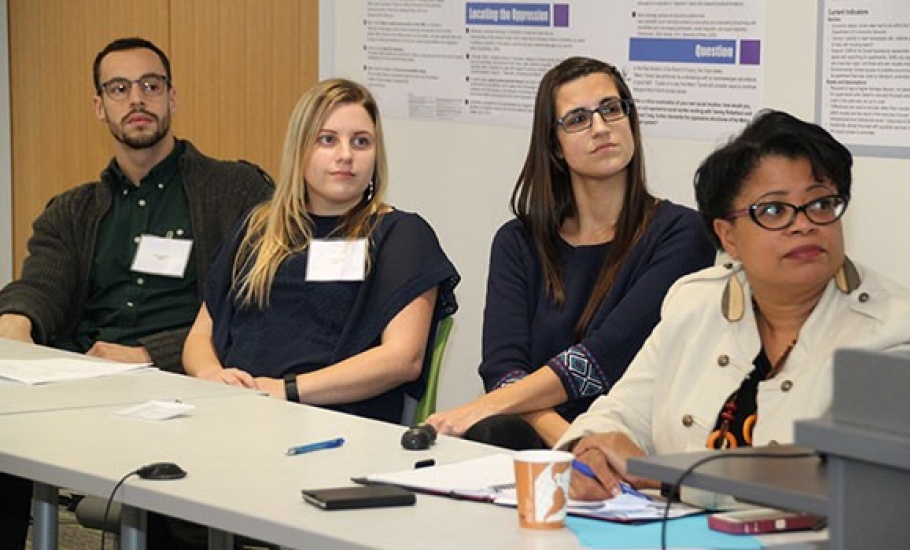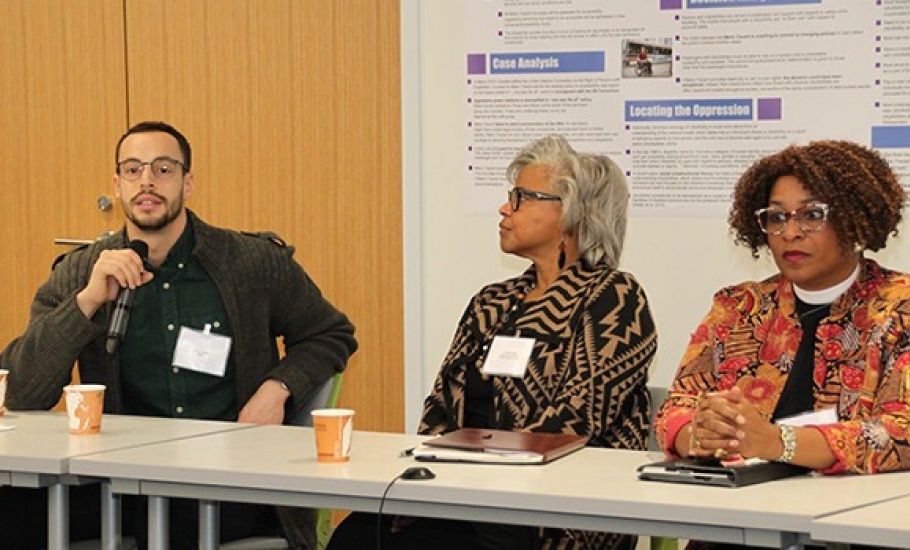75th Anniversary Celebrations
Ìý
50 Years of Human Rights in Nova Scotia Conference
The Nova Scotia Human Rights Commission was established in 1967. To mark the 50th anniversary -- and to further engage Nova Scotians in a meaningful discussion about human rights and issues of equity -- Dalhousie University School of Social Work hosted a one-day conference on December 9, 2016.Ìý
In 1948, the United Nations General Assembly proclaimed the Universal Declaration of Human Rights (UDHR) for all people and all nations. Nineteen years later, in March 1967, the government of Nova Scotia established the Nova Scotia Human Rights Commission (NSHRC) ""
The conference provided an opportunity for students, advocates, and members of the public to come together for discussions about human rights and social justice. Participants were invited to review Master of Social Work students' study of cases that have gone before a Nova Scotia Human Rights Commission Board of Inquiry, to critically review what we have learned, and to evaluate how effective we have been in challenging and changing "long-standing patterns of discrimination."Ìý
Leading human rights professionals shared their perspectives on human rights in Nova Scotia, and community advocates presented their ideas for supporting individuals who are navigating the human rights complaint process.ÌýThe conference was followed by a reception in honour of the 75th anniversay of the School of Social Work, Dalhousie University
Read more:
Moving Forward on Human Rights (Dal News)
Ìý
Ìý
Ìý
Poster DownloadsÌý |
Ìý |
| InSight into Oppression (PDF) | Who Guards the GuardiansÌý(PDF) |
| Human Rights for Persons with (dis)AbilitiesÌý(PDF) | The Pervasiveness of Racism in CanadaÌý(PDF) |
| More Than a LabelÌý(PDF) | From Allegation to OutcomeÌý(PDF) |
| Colonization, Racism and EmploymentÌý(PDF) | Accommodating (dis)Ability in the Workplace(PDF) |
| Discrimination in HousingÌý(PDF) | (dis)Ability and DeniabilityÌý(PDF) |
| Cultural Complexities in a Halifax Community(PDF) | Ìý |
Ìý
Resource DownloadsÌý |
Ìý |
| CONFERENCE SCHEDULEÌý(PDF) | POSTER AND PANEL ABSTRACTSÌý(PDF) |
| OPENING PANEL BIOSÌý(PDF) | GROUP PRESENTATION BIOSÌý(PDF) |
| CLOSING PANEL BIOSÌý(PDF) |
Primary Sponsor:Ìý
Additional Sponsors:ÌýOffice of the Vice Provost, Student Affairs, Dalhousie University;Ìý;Ìý,Ìý
Ìý
Opening Plenary: Human Rights in Nova Scotia Yesterday, Today, and Tomorrow
In this opening plenary, panelists shared their views on human rights in Nova Scotia -- past, present, and their visions for the future.
Panelists:ÌýA. Wayne MacKay, Professor of Law, Dalhousie University, Yogis & Keddy Chair in Human Rights; Kendrick H. Douglas, Lawyer, Bacchus & Associates; Kymberly Franklin, Counsel, Nova Scotia Human Rights Commission
Moderator:ÌýDr. Arig Al Shaibah, Vice-Provost, Student Affairs, Dalhousie University
MSW Case Study Presentations
Since the early beginnings of the Nova Scotia Human Rights Commission, human rights legislation has evolved. However, despite 50 years of service, each year there are a number of cases brought to the Commission's Board of Inquiry because of a perceived human rights violation. Most individuals who file a human rights complaint, and continue through to a Board of Inquiry, do so because they want to see some change in the conditions that led to their complaint. Yet these cases seldom lead to increased public awareness, education, or systemic change.
As social workers, we are professionally directed to utilize empathetic skills to facilitate an understanding of our client's world, but we are not insulated from the socially constructed biases and stereotypes that have formed our culture. Anti-oppressive social work requires us to engage in unlearning processes to raise our consciousness about the socially embedded prejudices supporting domination of one group over another.
's course, Theory and Practice of Anti-Oppressive Social Work in Diverse Communities, is one of the core courses in Dalhousie University's Master of Social Work program. Students engage in critical dialogue, reflection, and action about oppression, and the role of anti-oppressive social work. Dr. Thomas Bernard designed an assignment using public Human Rights Board of Inquiry cases to teach students about oppression from the perspective of persons who have had to fight for their human rights. The aim of the assignment is to facilitate the unlearning process; to consider the implications of ability, age, class, ethnicity, gender, race, religious beliefs, sexual identity, citizenship, and/or sexual orientation and, where possible, the intersecting experiences of combined oppressions, leading to an understanding of the world through a different lens. Students presented their case analyses as either a poster or panel presentation.Ìý
Closing Plenary: From Individual Complaint to Community Action
In this closing plenary, panelists shared their analyses and actions taken to support a community member in the fight for rights. Members of the African United Baptist Assocation reflected on the actions they took -- and the social media tools they used -- to engage the general public in community action to address the multi-layered challenges that complainants face when dealing with a case of systemic racism.Ìý
Panelists:ÌýRev. Dr. Rhonda Y. Britton, Cornwallis Baptist Street Church; Rev. Dr. Lennett J. Anderson, Senior Pastor, Emmanuel Baptist Church; Rev. LeQuita H. Porter, Pastor, East Preston United Baptist Church
Moderator: Pat Gorham, Director, Policy, Planning and Strategic Initiatives, Nova Scotia Advisory Council on the Status of Women
Ìý
School of Social Work 75th Anniversary Reception
The conference was followed by a reception in celebration of the 75th anniversary of Dalhousie University School of Social Work.ÌýThe School of Social Work was established independently in 1941 as The Maritime School of Social Work in Halifax. It was founded on the principles of social justice and connection to community -- principles it continues to reflect today. In 1969 The Maritime School of Social WorkÌýjoined Dalhousie University Some years later the School was renamed andÌýbecame the Dalhousie University School of Social Work.
The School has expanded its enrolment significantlyÌýto include a national online delivery of its BSW and MSW programs while maintaining its campusÌýlocation. The School is grateful to its faithful alumni now spread around the world, and were pleased to be part of this exceptional Conference in honour of the 50th AnniversaryÌýof the Nova Scotia Human Rights' Commission.Ìý
Ìý

